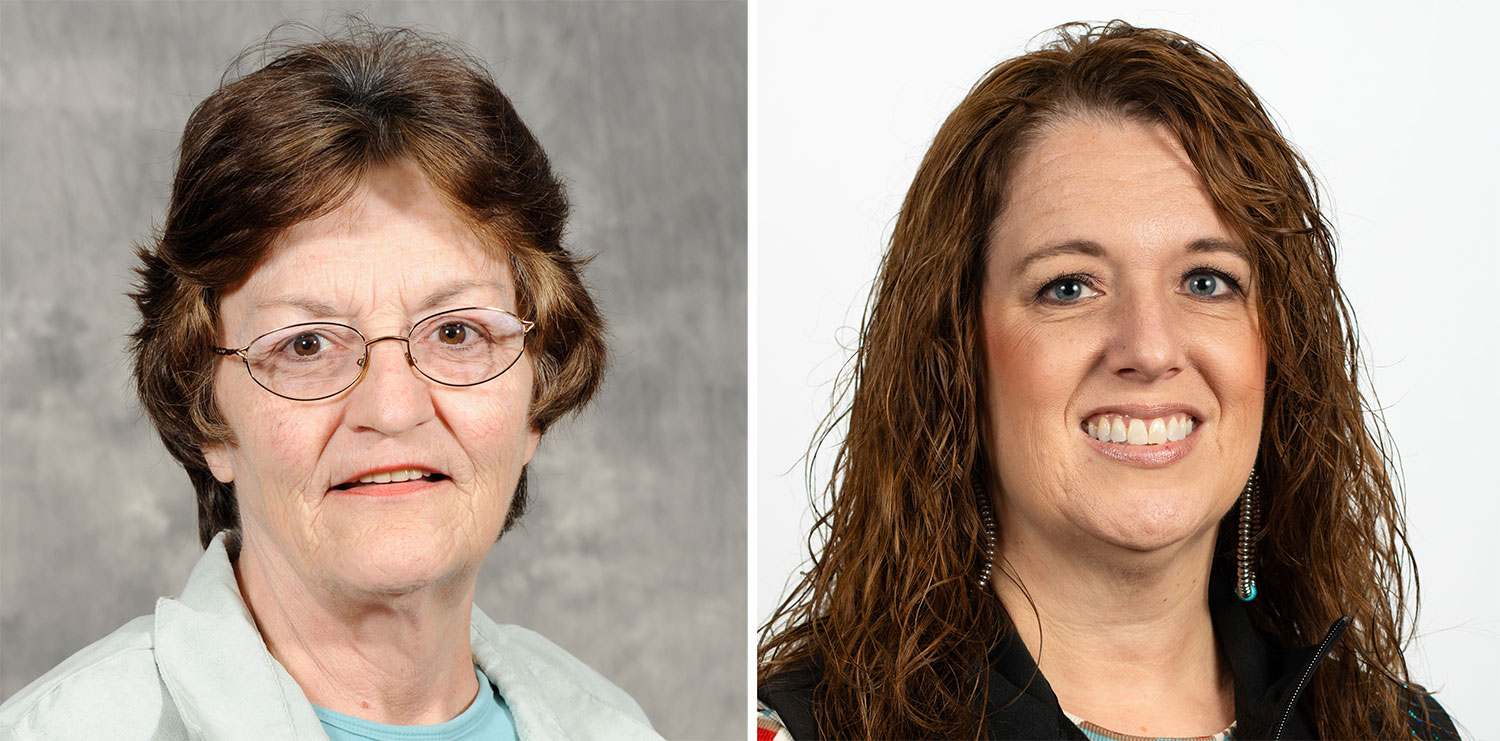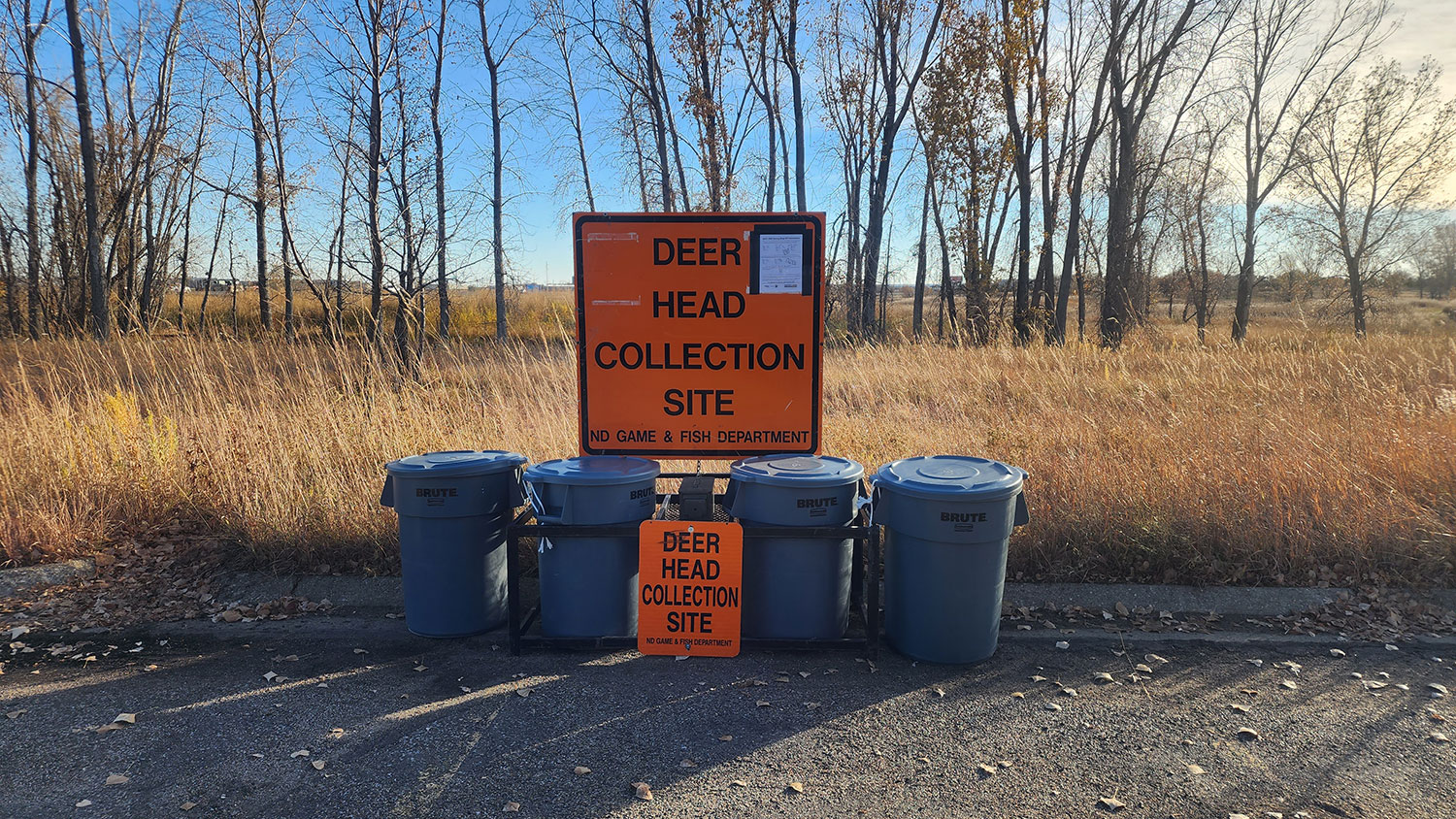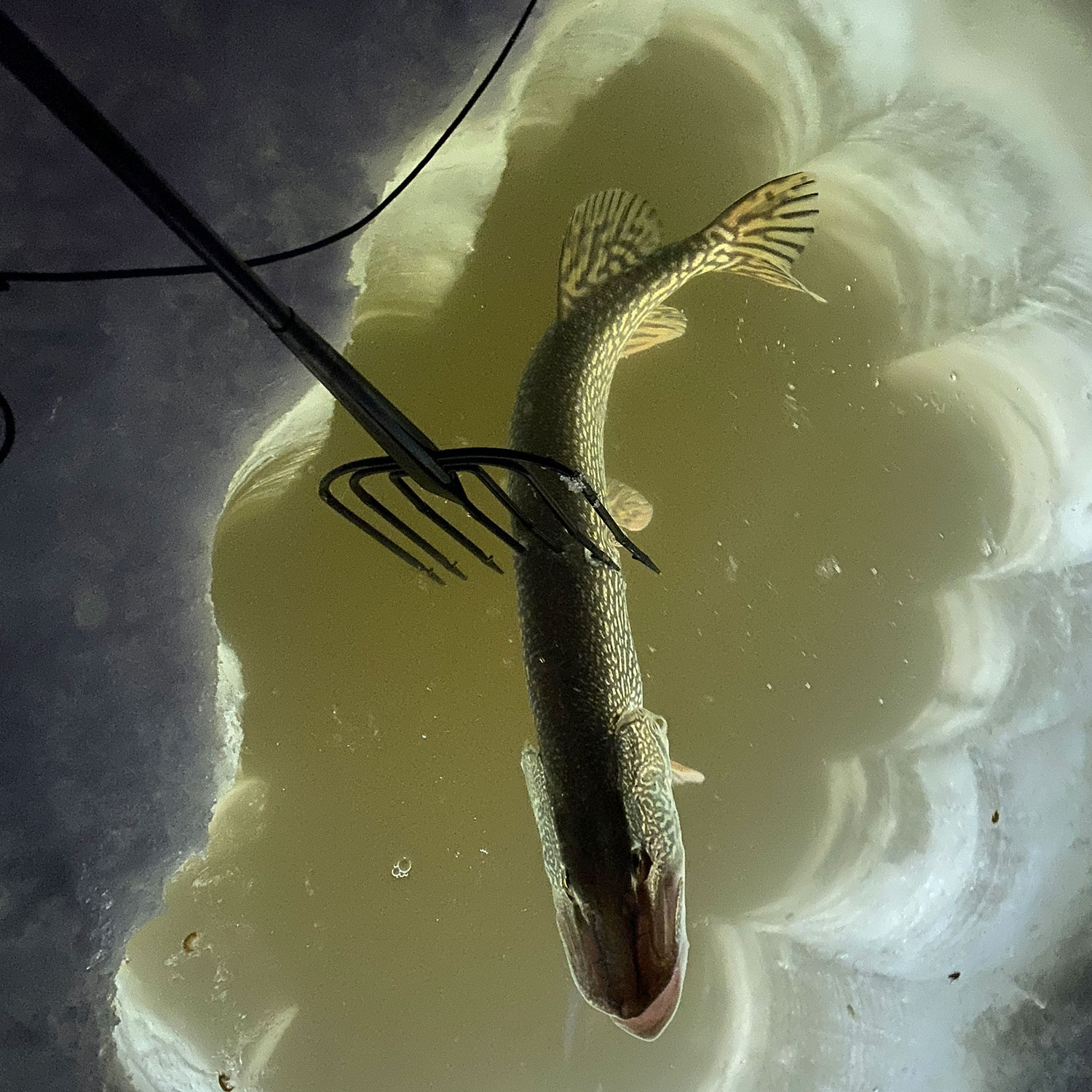
Buffaloberry Patch
CWD Testing, Disposal Requirements
Ice Fishing Reminders
Anglers are encouraged to refer to the 2022-24 North Dakota Fishing Guide for winter fishing regulations.
Some winter fishing regulations include:
- A maximum of four poles is legal for ice fishing. However, when fishing a water body where both open water and ice occur at the same time, an angler is allowed a maximum of four poles, of which no more than two poles can be used in open water.
- Tip-ups are legal, and each tip-up is considered a single pole.
- There is no restriction on the size of the hole in the ice while fishing. When a hole larger than 10 inches in diameter is left in the ice, the area in the immediate vicinity must be marked with a natural object.
- It is only legal to release fish back into the water immediately after they are caught. Once a fish is held in a bucket or on a stringer, they can no longer be legally released in any water.
- It is illegal to catch fish and transport them in water.
- It is illegal to leave fish, including bait, behind on the ice.
- Depositing or leaving any litter or other waste material on the ice or shore is illegal.
- Any dressed fish to be transported, if frozen, must be packaged so that the fillets are separated and thus can be easily counted without thawing. Two fillets count as one fish.
- The daily limit is a limit of fish taken from midnight to midnight, and no person may possess more than one day’s limit of fish while actively engaged in fishing. The possession limit is the maximum number of fish that an angler may have in his or her possession during a fishing trip of more than one day.
Hunters Urged to Participate
North Dakota hunters receiving a survey this winter are encouraged help with wildlife management by completing the survey online or returning it to the state Game and Fish Department.
Chad Parent, Department survey coordinator, said big game, small game, waterfowl, swan, turkey and furbearer questionnaires will be mailed to randomly selected hunters.
Parent said it is important hunters complete and promptly return the survey, even if they did not hunt. The harvest survey allows Game and Fish to evaluate the hunting season, to determine the number of hunters, amount of hunting activity and size of the harvest.
A follow-up survey will be mailed to those not responding to the first survey.
Darkhouse Spearfishing Registration
Report Violations with RAP
The North Dakota Game and Fish Department encourages hunters, anglers and landowners who witness a fish or wildlife violation to file a report with the Report All Poachers program.
Witnesses should report a violation by calling RAP at 701-328-9921.
Witnesses should note the vehicle description, including make, color, license plate number and state issued. Description of the violator should also be considered.
The RAP line offers rewards – from $100 to $1,000 depending on the nature and seriousness of the crime – for information leading to the conviction of fish and wildlife law violators. Reports can also go directly to game wardens or other law enforcement agencies. Callers can remain anonymous.
Register for Game Warden Exam
Individuals interested in taking the exam to select candidates for a full-time temporary district game warden position must register by Dec. 27. Testing locations are scheduled for 10 a.m. Central time at the following locations the first week in January 2024.
- Jan. 3 – Game and Fish office, Williston.
- Jan. 4 – Game and Fish office, Bismarck.
- Jan. 5 – West Fargo Police Department, West Fargo.
Applicants must register by submitting an online application through the North Dakota State Job Openings website.
Applicants must be at least 21, have a bachelor’s degree at time of hire or an associate degree with either 2 years of law enforcement or wildlife experience, have a valid driver’s license and a current North Dakota peace officer license, or eligible to be licensed. Candidates must successfully complete a comprehensive background check and must not have a record of any felony convictions.
Salary through training is $4,500 per month. For more information, see the district game warden job announcement.
Advisory Board Meeting Dates
2024 Calendar Orders
The North Dakota Game and Fish Department is taking orders for its North Dakota OUTDOORS calendar, the source for all hunting season and application dates for 2024. Along with color photographs of North Dakota’s wildlife and outstanding scenery, it also includes sunrise-sunset times and moon phases.
Calendars must be ordered online.
Staff Notes

Mason Hammer (left), Kyle Oxley (right)
ANS Biologists Hired
Mason Hammer and Kyle Oxley have been named aquatic nuisance species biologists for the Game and Fish Department in Jamestown.
Hammer attended the University of North Dakota where he earned a degree in fisheries and wildlife biology. Oxley attended Bemidji State University where he earned a degree in aquatic biology with a fisheries emphasis. Both had experience working with the Department before landing their new positions.

Aaron Larsen
Larsen Joins Conservation Staff
Aaron Larsen was named conservation biologist for the Game and Fish Department in Bismarck.
Larsen worked with North Dakota Department of Environmental Quality for 17 years before coming to the Game and Fish Department. His focus will be on aquatic habitat assessment and assisting with aquatic invertebrates for the State Wildlife Action Plan.

Gail Mosset (left), Elizabeth Klein (right)
Mosset Retires, Klein Joins Agency
Gail Mosset retired after 34 years with the North Dakota Game and Fish Department. At the time of her retirement, Mosset was a licensing assistant in the Department’s Bismarck office. Elizabeth Klein was hired to fill the licensing vacancy.

Bryan Sea
Sea New District Fisheries Supervisor
Bryan Sea was promoted to Department district fisheries supervisor in Devils Lake. Sea was working in the agency’s Riverdale office as a fisheries biologist on the Missouri River System prior to the promotion.




